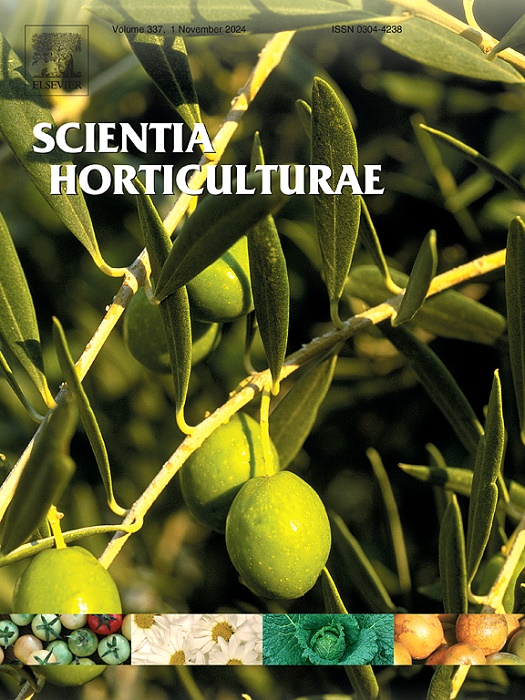Do commercially available fungal biocontrol agents improve the quality of strawberries?
IF 3.9
2区 农林科学
Q1 HORTICULTURE
引用次数: 0
Abstract
This study aims to evaluate the impact of various commercially available fungal biological control agents (BCAs) on the changes in the fungal soil microbiome and the chemical quality and productivity of the strawberry cultivar 'Senga Sengana'. For this purpose, several experiments were conducted over two growing seasons with four commercially available products, namely Inoq (arbuscular mycorrhizal fungi), Trichostar® Plus (Trichoderma harzianum strain T58), Prestop (Clonostachys rosea strain J1446), Contans® WG (Coniothyrium minitans), and an untreated control. The research examines the effects of BCAs on fruit weight, chemical fruit quality (including sugars, organic acids and phenolic compounds) and phenolic content in strawberry leaves. The results show no significant differences in organic acids, sugars or phenolic compound content in the strawberries between the treatments applied. The application of different BCAs also did not result in significant changes in the phenolic content of the leaves. As to the fruit weight, the highest was recorded on the first harvest date in both trial years. In comparison, the strawberries from Prestop- and Inoq-treated plants harvested had the highest fruit weight on the second and third harvest dates (in the first year of the trial). Moreover, the strawberries collected on the first harvest date (in the first year) had significantly higher glucose and fructose contents than those harvested on the second harvest date. Furthermore, the analysis of the fungal microbiome revealed that the introduced fungal strains were unable to establish successfully in the soil after the BCA treatment. In addition, the treatments did not significantly alter the composition or structure of the fungal or bacterial rhizosphere microbiomes. The outcomes indicate that the fluctuations in the abundance of bacterial and fungal genera were primarily due to plant-specific factors and seasonal dynamics. The BCAs used in this study had neither a positive nor a negative effect on the quality of the strawberry fruit under the experimental conditions. Instead, the results underline that a growing season and a harvest date had a stronger influence on the content of primary and secondary metabolites in the fruit than the BCA treatments.
求助全文
约1分钟内获得全文
求助全文
来源期刊

Scientia Horticulturae
农林科学-园艺
CiteScore
8.60
自引率
4.70%
发文量
796
审稿时长
47 days
期刊介绍:
Scientia Horticulturae is an international journal publishing research related to horticultural crops. Articles in the journal deal with open or protected production of vegetables, fruits, edible fungi and ornamentals under temperate, subtropical and tropical conditions. Papers in related areas (biochemistry, micropropagation, soil science, plant breeding, plant physiology, phytopathology, etc.) are considered, if they contain information of direct significance to horticulture. Papers on the technical aspects of horticulture (engineering, crop processing, storage, transport etc.) are accepted for publication only if they relate directly to the living product. In the case of plantation crops, those yielding a product that may be used fresh (e.g. tropical vegetables, citrus, bananas, and other fruits) will be considered, while those papers describing the processing of the product (e.g. rubber, tobacco, and quinine) will not. The scope of the journal includes all horticultural crops but does not include speciality crops such as, medicinal crops or forestry crops, such as bamboo. Basic molecular studies without any direct application in horticulture will not be considered for this journal.
 求助内容:
求助内容: 应助结果提醒方式:
应助结果提醒方式:


